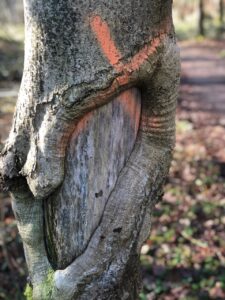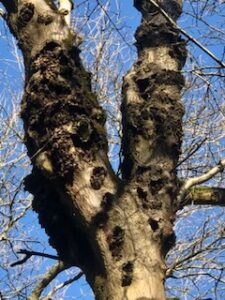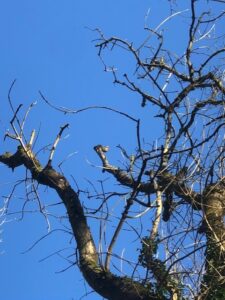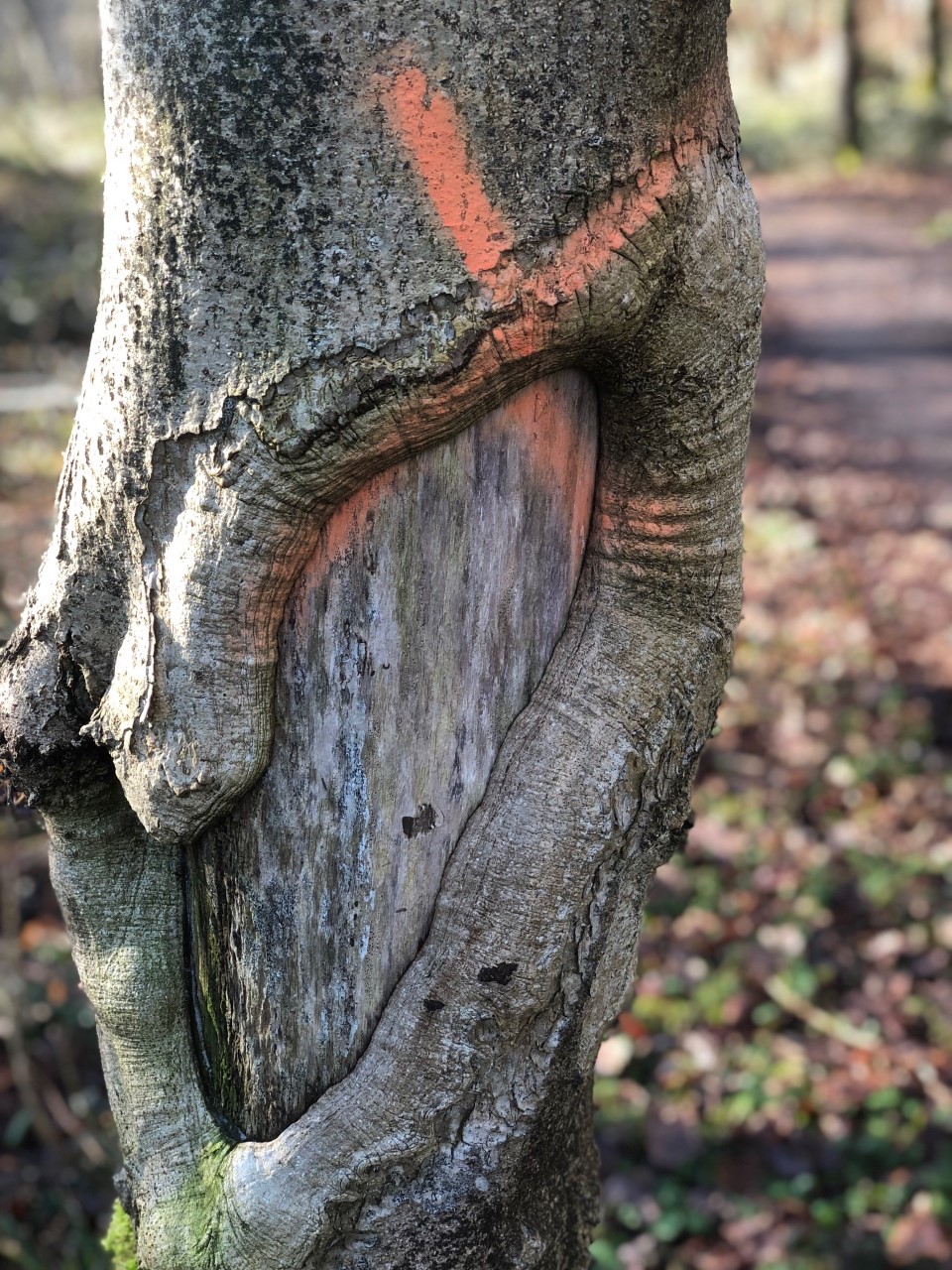23rd January, 2023
Ash is one of our most beloved and common trees in the UK and at the Woods at Oakley, but it is under great threat from ash dieback. It is estimated that the disease will kill around 80% of ash trees across the UK in the next 10-20 years. This will have a devastating impact on the landscape, the biodiversity of our woodlands and will cost the UK £15 billion!
This is particularly concerning as woodland now represents just 13% of the total land area in the UK. With 10% in England, 15% in Wales, 18% in Scotland and 8% in Northern Ireland. We at the Woods at Oakley are passionate about protecting our precious proportion of the UK’s woodland and we need your help in our fight against ash dieback. Every event held in the woods helps fund our woodland management programme, enabling us to carefully remove only the infected ash trees and to replant native species.
Ash dieback is an airborne disease that originated in imported trees from Asia. Whilst it is relatively harmless to Asian ash trees, the vast majority of UK trees are highly susceptible. The disease is a fungus that produces tiny fruiting bodies that release thousands of windborne spores. An infected tree can be identified by the wilting and death of leaves, and as the infection progresses into the twigs, branches and eventually the trunk, dark lesions, or cankers can form in the bark. These often have a characteristic elongated-diamond shape centred on the joints between branches, or where they join the trunk. The lesions typically, but not always, spread upwards and downwards from the joint as the infection spreads in both directions. They can eventually girdle the whole trunk, cutting off the tree’s supply of fluid and nutrients from the roots killing the tree. The photographs below taken in the Woods at Oakley show the tell tale signs that our ash trees are infected with this devastating disease.

Diamond lesions form

Cankers form in the bark

Twigs and branches die
There is no known cure, although some fungicides might be effective in suppressing the disease, enabling individual ash trees of particular value to be saved. These might include trees of high amenity, heritage or cultural value. However, such treatments have to be re-applied annually and can be expensive.
It is estimated that 150 million ash trees will die in the UK and the impact on our native wildlife that relies on them will be catastrophic. Ash trees support 44 species of wildlife which cannot be supported by any other trees, wild flowers which sustain a range of insects such as the rare and threatened high brown fritillary butterfly, bullfinches which eat the seeds, and woodpeckers, owls, redstarts and nuthatches who nest in them. It is calculated that approximately 30 species of animals will be gone.

A healthy ash tree
Visitors to woods, forests, parks and public gardens can help to minimise the spread of ash dieback and other plant diseases. They can do this by brushing soil, mud, twigs, leaves and other plant debris off their footwear and wheels – including the wheels of cars, bicycles, mountain bikes, baby buggies and wheelchairs – before leaving the site. They should then wash these items at home before visiting another similar site.
Initial research has provided hope, suggesting that we might have some trees that are resilient to ash dieback and perhaps the population could recover over the next fifty years. In the meantime, where practical we are retaining all existing ash trees that are healthy so that natural regeneration can be promoted by these resilient trees. We are increasing the genetic diversity of the trees in The Woods at Oakley by planting a mixture of native tree species and ensuring these are only sourced in the UK and Ireland, to reduce the risk of importing new diseases and pests.
We thank all of the friends of The Woods at Oakley for their support in our fight against ash dieback.

